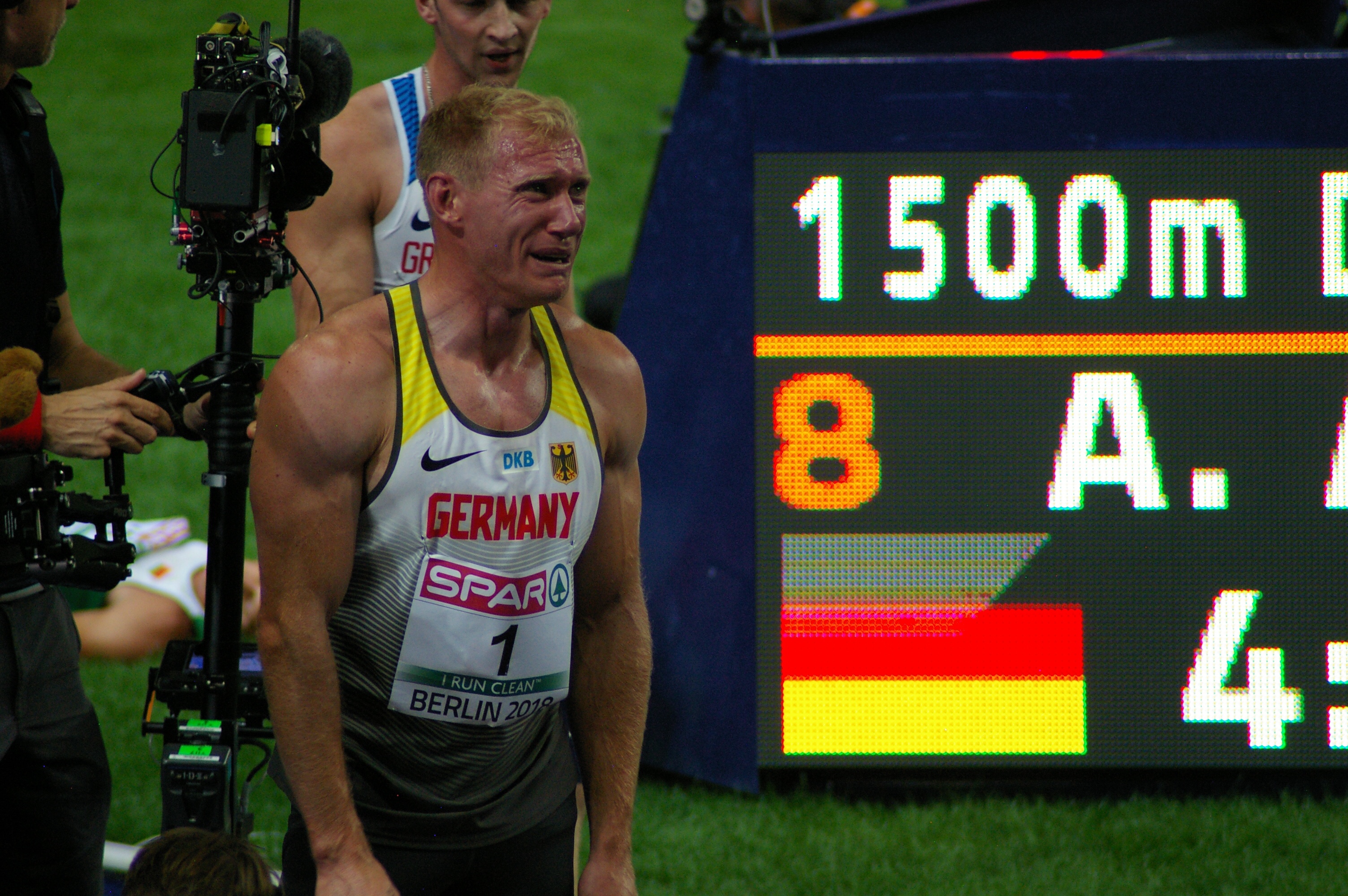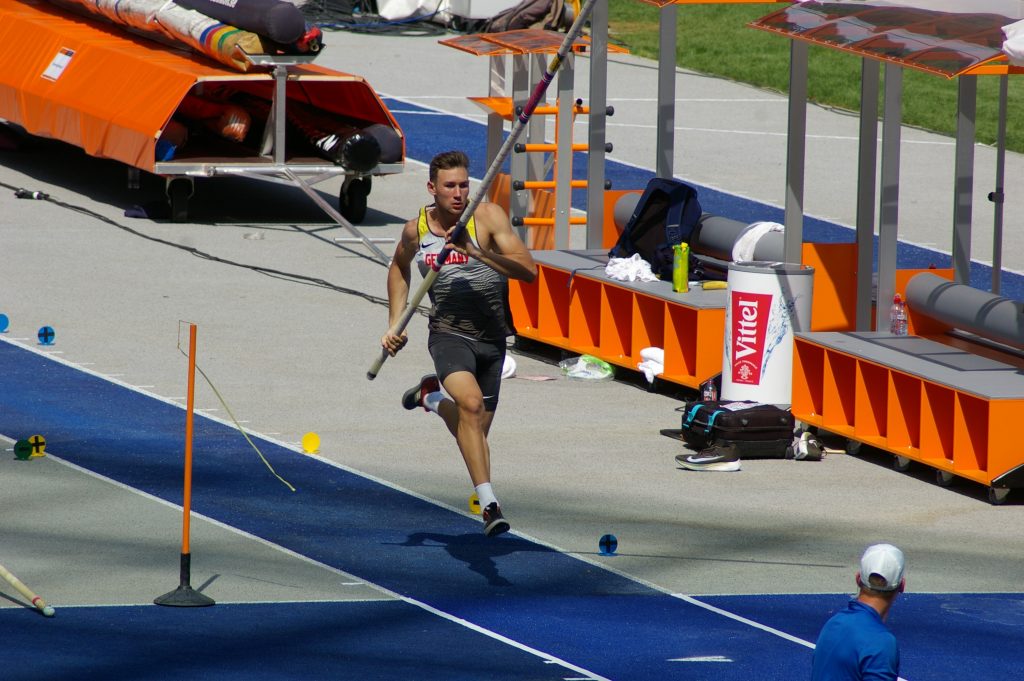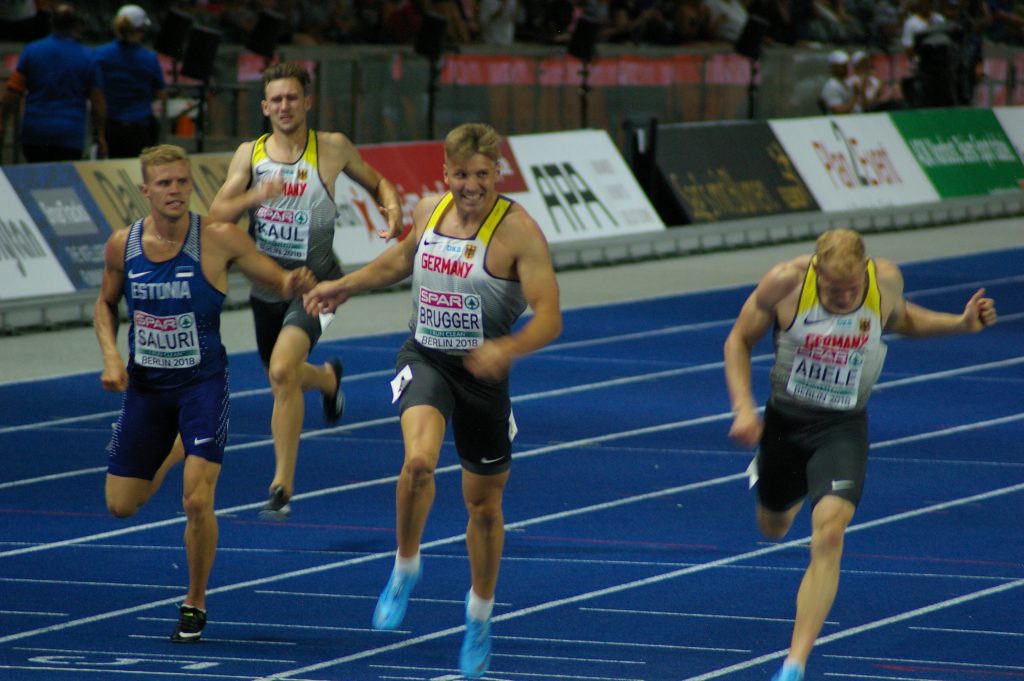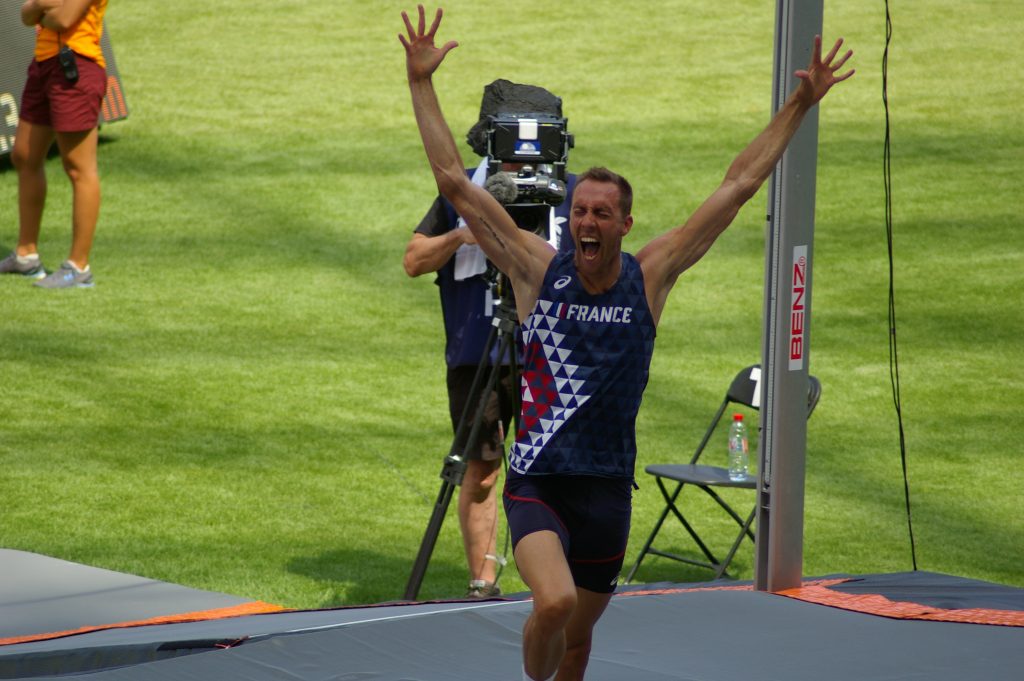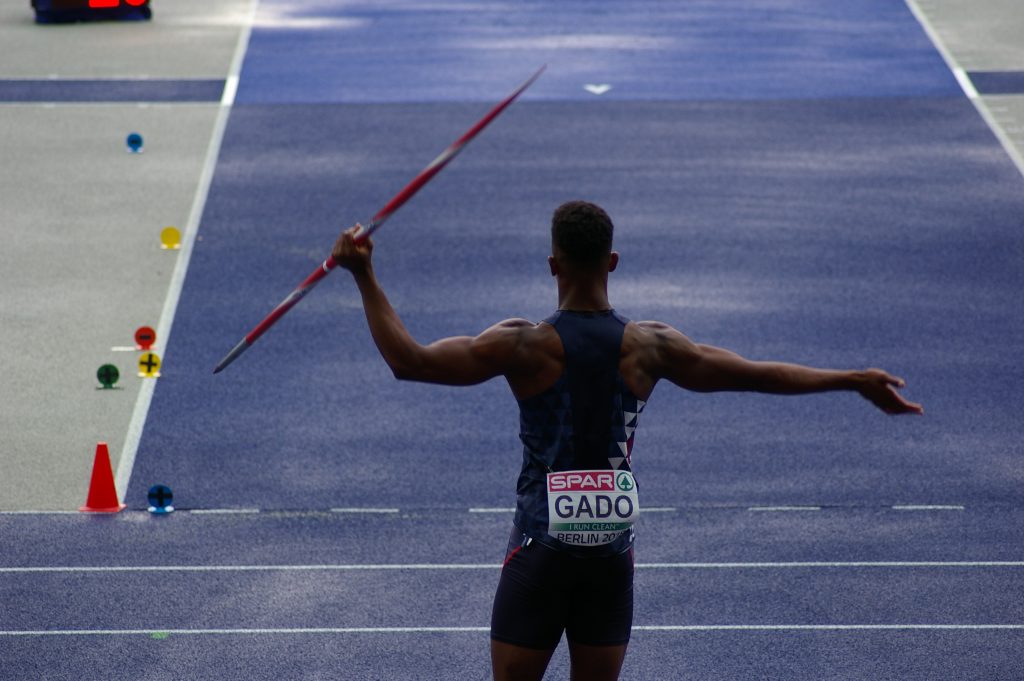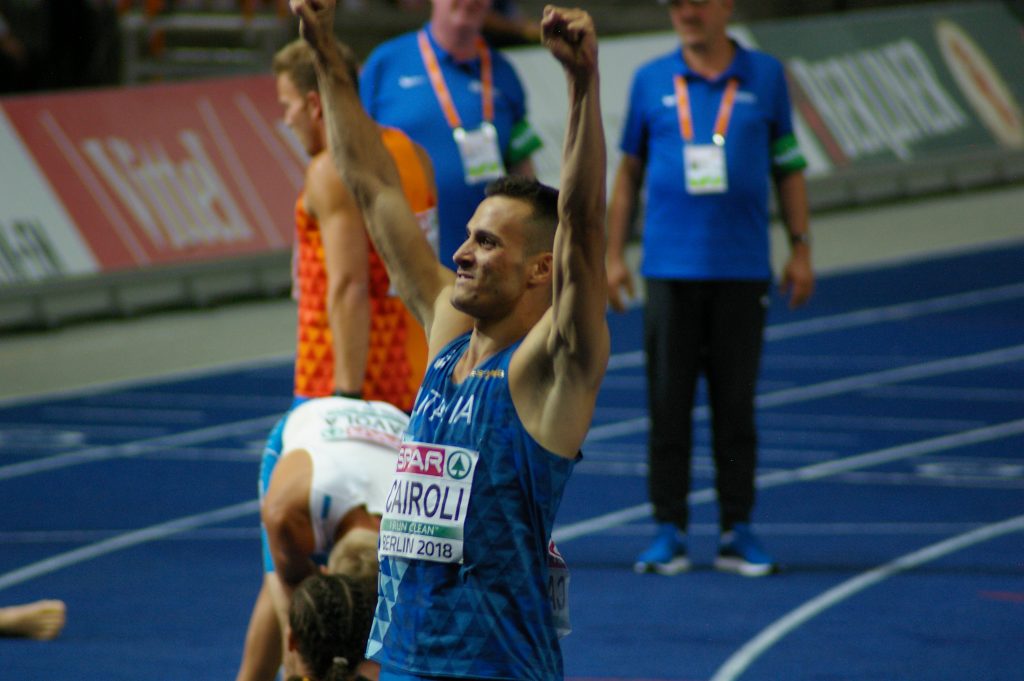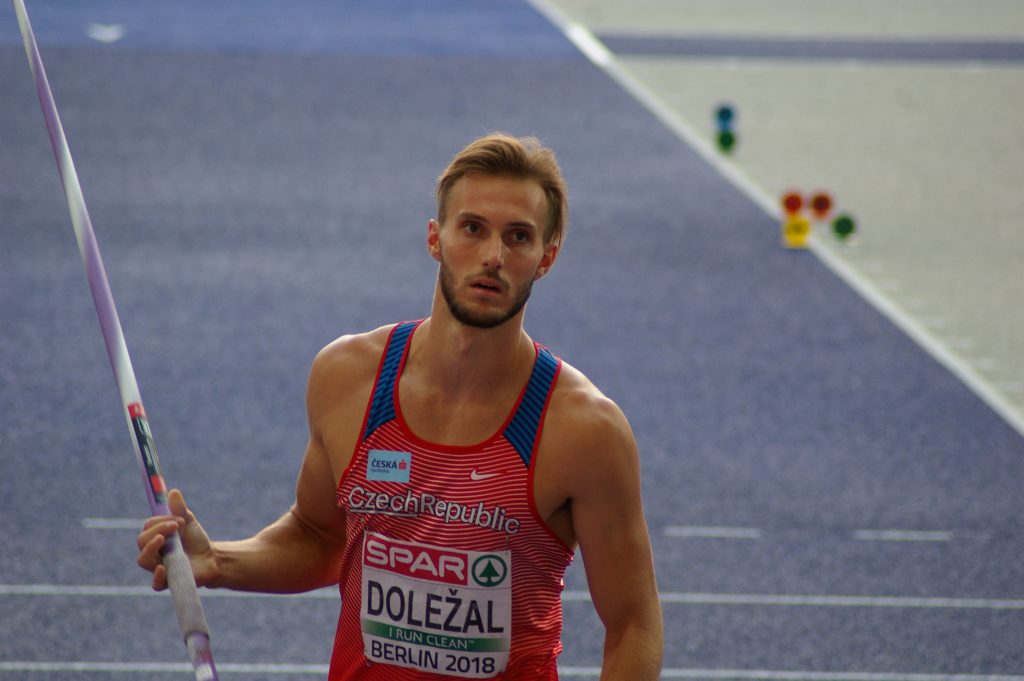To the discerning Decathletes of Europe fan, the Berlin European Championships were all about whether Kevin Mayer would pull out a big score, after teasing us with individual PBs throughout the season so far. A 13.71 hurdles and a 16.51 shot in Paris, and a jaunty 52.38 discus in Germany. He didn’t do Gotzis and engaged in no more than a cheeky wee “triathlon” in Ratingen. It all pointed to some Prime Kevin in Berlin.
The Enigma of Kevin
Was he going to have a pop at 9000? Roman’s European record? Ashton’s World Record? Prime Kevin certainly showed up for the 100m with a 10.64 PB. He wasn’t messing about! Onto the long jump. The first round, a foul for Kevin. Second round, a second foul. Suddenly, we were back at the London World Champs where Kevin took 3 attempts to clear his opening vault of 5.10. Or at the World Indoors in Birmingham where he cleared 5m, passed at 5.10 and then failed to clear 5.20.

Then the unthinkable happened. In the third and final round, a third foul. European Championships Kevin had done a Commonwealth Games Damian.
Whenever anyone asks me if I think Kevin will break Ashton’s world record, I always answer along the same lines. Yes, he has the talent to do so. Contrary to the composure and consistency of Ashton Eaton and Roman Sebrle, Kevin is all drama and flair. And – in my humble opinion – we’ll only see the big decathlon mark once he channels that drama and flair all in the same direction, either through design or by luck. That’s not a criticism – just an observation of the very different ways in which athletes reach greatness. And I am totally here for it, even if my blood pressure says differently.
We have questions, Kevin
In his post-race interview, Kevin was, as we might have anticipated, in tears. He said that he wanted to take risks, wanted to express himself 100% and he had done that. But also that he paid the price – and that he has no regrets.
“I expressed myself and it was very strong. I can’t say that I wanted to do 7.30 just to continue the decathlon. I have big ambition and I need to take risks.”
Ok Kevin, we feel your pain, and weep with you. But we also have questions.
- If winning the gold medal wasn’t the aim, why was Kevin here?
- If getting a big score was the aim, why was Kevin undermining that by risking a no-mark?
- If Kevin wanted to throw caution to the wind in the long jump and beat his 4-year-old 7.65 PB, why not do that in Gotzis or Ratingen, as suggested to me by Trackcastic pal Ceri? Or at a Diamond League? Why risk a title and a big score?
What does it MEAN Kevin? What is this enigmatic expression of which you speak
- Were Ruben Gado and Romain Martin’s three fouls in the Long Jump also part of this French team expression?
- Is Gael Querin’s interesting long jump technique also his way of expressing himself?
- Was Salim Sdiri’s skewering by Tero Pitkamaki’s javelin in 2007 in Rome actually a modern art installation?
- Where does Bosse’s cat fit into this? And Renaud’s zip?
Dear reader, do not mistake my wry presentation for disinterest or criticism. My ticket is booked for Talence and – armed with a selection of the finest French existentialism – I am there for Kevin expressing himself in September.
The resilience of Niki, Tim, Mathias, Ruben and Romain
Once Kevin was gone, however, the nature of the competition changed with eyes naturally turning to the Germans. The Germans had started the 2018 season with World silver and bronze medallists Rico Freimuth and Kai Kazmirek at the forefront as usual, but Rico decided to take a break from the event after Gotzis. That made for a German team of Kai, Arthur Abele and Mathias Brugger, until Kai got injured on 1 August and 20-year-old Niklas Kaul was drafted in at the last minute
And thus the display of guts and resilience began. After that 11th hour call up, Niklas Kaul finished 4th, setting a PB in the discus and pulling out multiple season’s bests. Mathias Brugger also no-marked in the jinxed long jump, but he subsequently set a massive 60cm PB of 15.92 in the shot. He said after the long jump “It is an honour for me to be here, and this is why I will finish this decathlon”.
Indeed, Kevin’s thrice-fouling compatriots Ruben and Romain also went on to set PBs in the 400 and Pole Vault respectively, and several SBs. How on earth do you find the resilience to go onto deliver PBs and SBs after such a crushing experience as no-marking on your second event? What mental strength are these guys drawing from? Ruben and Romain genuinely had a really good event overall aside from the long jump, and that warms the cockles of my heart.

Niklas Kaul 
Mathias Brugger 
Romain Martin 
Ruben Gado
But let’s talk about Tim Duckworth. His first senior championship vest for GB, at the end of a humongously long season – he opened his NCAA season in April by breaking 8100 for the first time, won the NCAA champs with 8336 in June, and won the LJ with yet another 8m jump at the British trials in June. Second only to Kevin after the 100m, and leading after the long jump, Tim mostly stayed in first or second place all the way through to the javelin.
While Tim’s decathlon profile has his weakest events clustered at the end of the competition, that maintenance at the top in your first senior international season is quite astonishing. His buffer from his best events (including a below par long jump) meant he only dropped to fifth. And after that season, imagine setting a spectacular new PB in your high jump, and setting a PB in the last, most draining of events the 1500. What guts and resilience and stamina and determination.
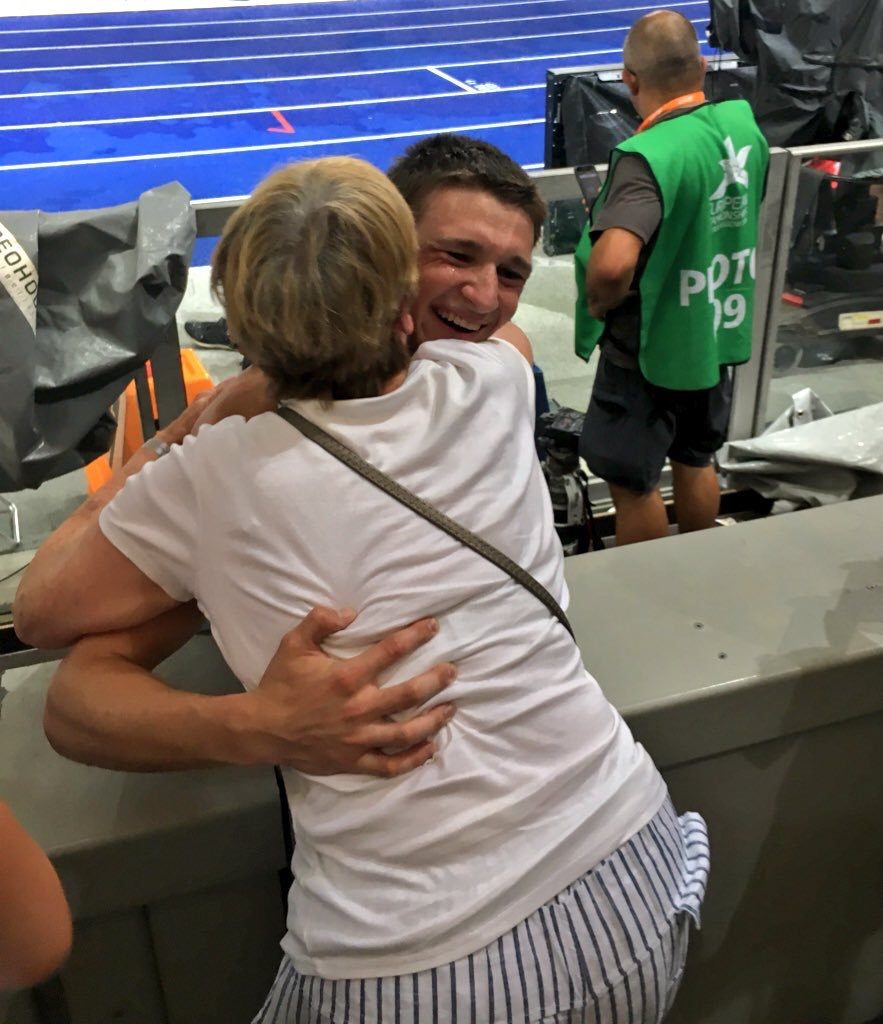
The Unit of Arthur
While the headlines tended to favour the fresh new face of Tim, the solid work was being done by Arthur Abele behind the scenes. Six season’s bests over 2 days and a giant javelin set him up beautifully for the 1500m, where he has the fastest PB in the field. “How can a unit like Abele have run a 4:15 1500m?” asked my good friend Jim. What a unit Arthur is. A unit who has had more injuries and illness in the last few years than seems fair. What heart he has shown by cementing his place on a massively competitive German team and dragging himself back to a European gold medal *pauses to wipe eyes*.
In his post-event interview he reminded us that he had been suffering from Bell’s palsy in the spring, as well as Achilles problems, and as late as March he didn’t know whether he would be out for the season. This gold meant so much, to Arthur and to every decathlon fan.
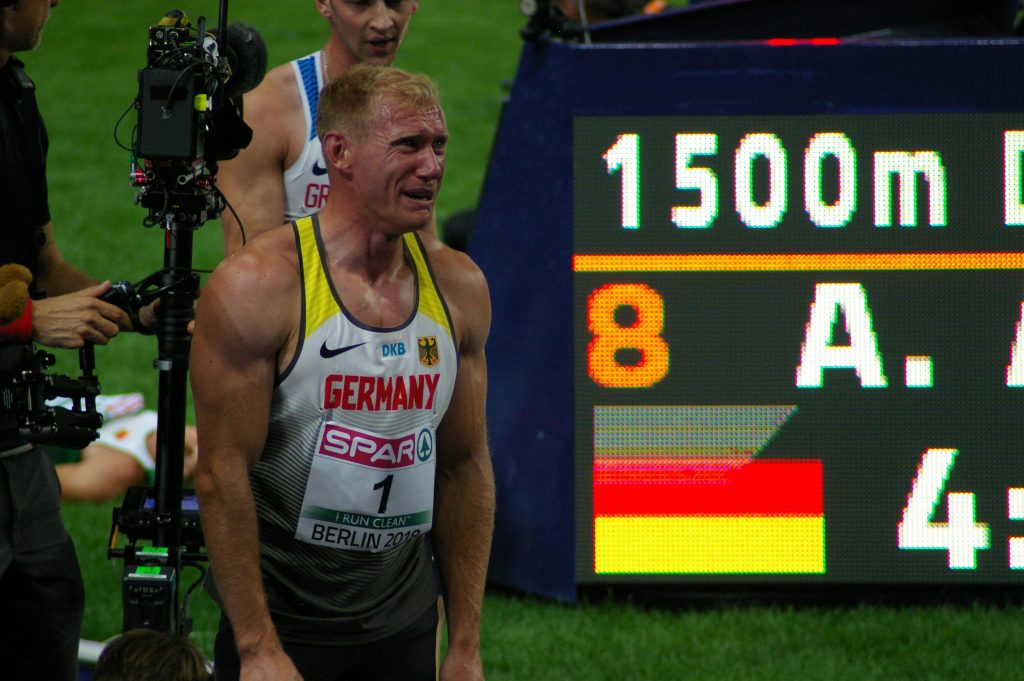
Resurgent and rising stars: Ilya, Vitaly, Martin, Simone and Jan
Behind Arthur, another set of decathletes were having a strong competition. Ilya Shkurenyev hasn’t been the same since Rio, but we saw flashes of his brilliance again in the pole vault, where he entertained us in getting near his 5.40PB. Ilya and Vitaly Zhuk paced each other in the 1500 to silver and bronze. If Janek Oiglane was the breakthrough talent of 2017 (unfortunately and unhappily injured this year), then Vitaliy Zhuk is the one to watch from 2018. I first saw him in Gotzis earlier this year, but he set 4 individual PBs here in Berlin and is still only 21. I’m very interested in where he goes next – I haven’t been impressed by any Belarus decathlete since the iconic Andrea Krauchanka.
Behind Vitaly, three other guys stand out with a great competition: Martin Roe in 6th, who won Florence Multistars earlier in the year and set PBs in all his jumps; Simone Cairoli in 10th also set 4 individual PBs, is closing in on 8000 points and is the most exciting Italian decathlete I’ve seen in years; and Jan Dolezal – the number one Czech in the absence of the injured Adam Sebastian Helcelet – finished 6th with 4 individual PBs and an overall decathlon PB.

Simone Cairoli 
Jan Dolezal
And so, decathletes of Europe, to Talence, where we shall express ourselves again
This post was first published in August 2018 on Trackcastic.com. All Photos are courtesy of James Rhodes.

